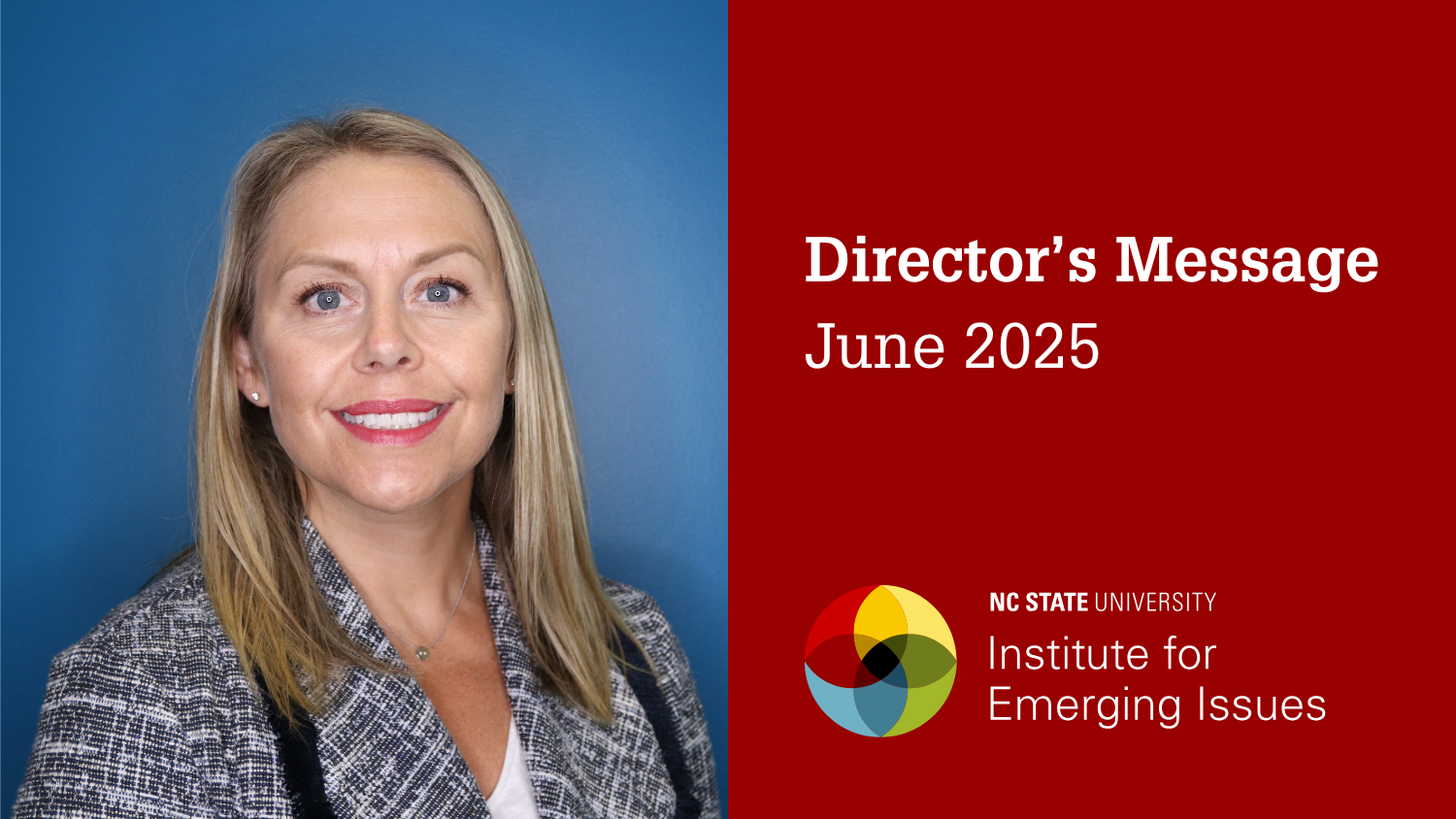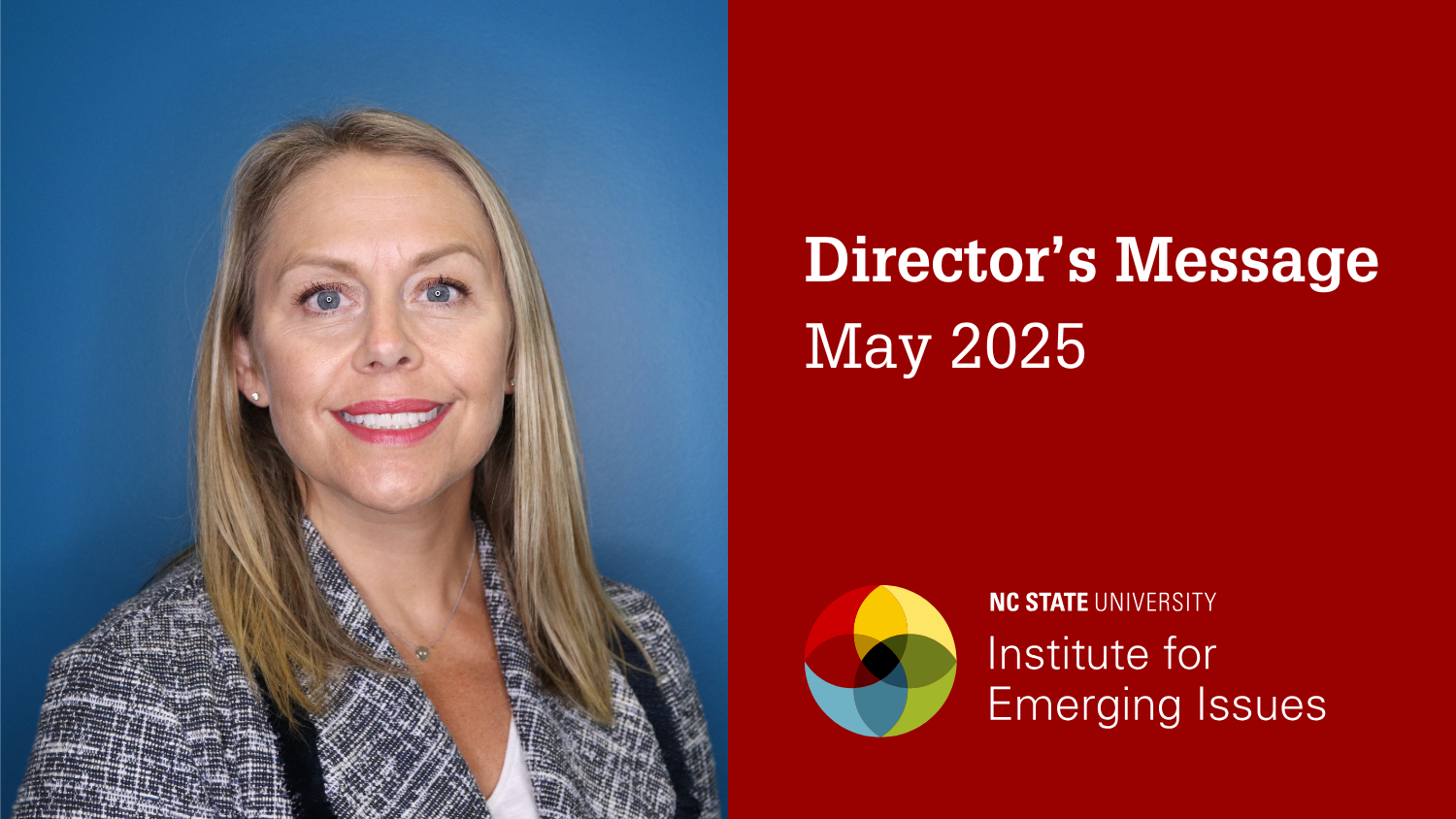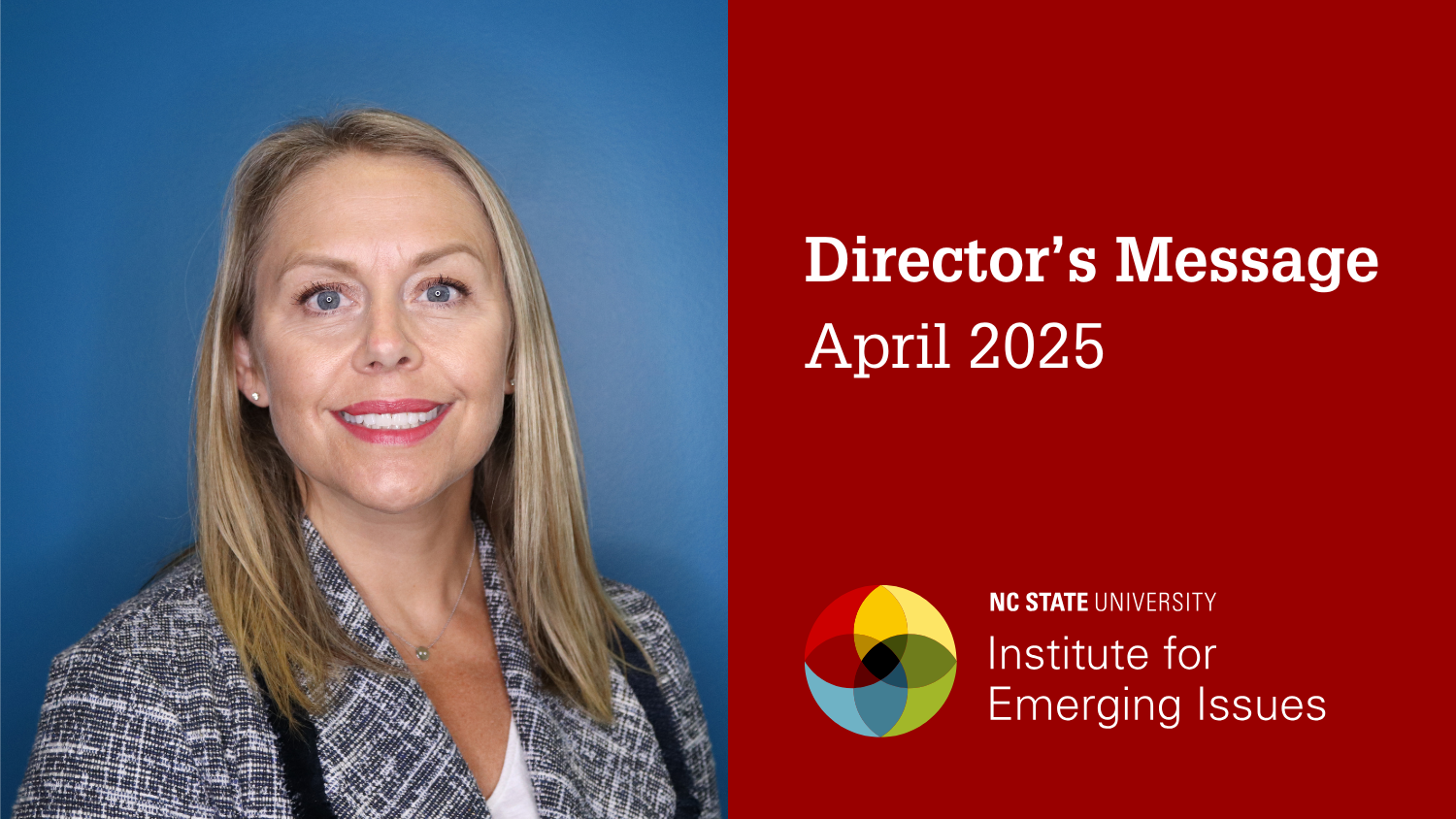The Director’s Log: September 2017
 I’ve been on the road for the past couple of weeks (you can view my notes on a week of talking with and learning from Chinese government leaders, business owners and university administrators here), and one of the biggest lessons I learned is how hard it is to see the world from beyond our particular lens.
I’ve been on the road for the past couple of weeks (you can view my notes on a week of talking with and learning from Chinese government leaders, business owners and university administrators here), and one of the biggest lessons I learned is how hard it is to see the world from beyond our particular lens.
When I left the US, the attention of our nation was focused on Houston and the Gulf Coast (and many in North Carolina, including our communications director, Nan Sanseverino, were going there to help).
In China, nobody was talking about Houston, even though it was one of the biggest rain events in recorded history. Instead, the focus of the nation’s leading papers was on the upcoming Communist Party Congress.
After China, I was then on to Alabama, where nobody I spoke with was aware of the upcoming Communist Party Congress, even though it could set policy that will avert a nuclear war with North Korea and could begin a process that would lift 50 million people out of poverty. Instead, the focus of the state papers was on the Senate runoff between Luther Strange and Roy Moore.
Meanwhile back in North Carolina, attention in the papers shifted to Hurricane Maria and what damage she might do.
But the truth is that on a daily basis, most of us in each of these areas are concerned about matters even closer to home. “Will my job survive the latest downturn or will we have to move?” “How am I going to pay for that hospital visit or my children’s education?” And, as I was reminded doing the “Crib to Career” workshop in Statesville earlier this month, and IEI staff was reminded in our other meetings across the state this month (see Donnie Charleston’s great blog post here), a lot of people are wondering “will my children have a safe place to go for child care and will they learn anything once they go there”?
As citizens, we need to be aware of what is going on at all three levels: 1) big picture challenges affecting our nation or the world; 2) emerging issues facing our state; and 3) the critical concerns of our own back yard. And while we at Emerging Issues care some about the first of these and a lot about the second, I think all of us know that the greatest opportunity for change comes in the third. This month we saw the passion that people bring to addressing the challenges in their own back yard.
The phrase “think globally, act locally” is a hundred years old now, but it still makes a lot of sense as a change strategy. As we wrap up our “Crib to Career” workshops this month and launch our Blue Ribbon Commission this fall, we’ll be looking – and learning – local.
Leslie
- Categories:


